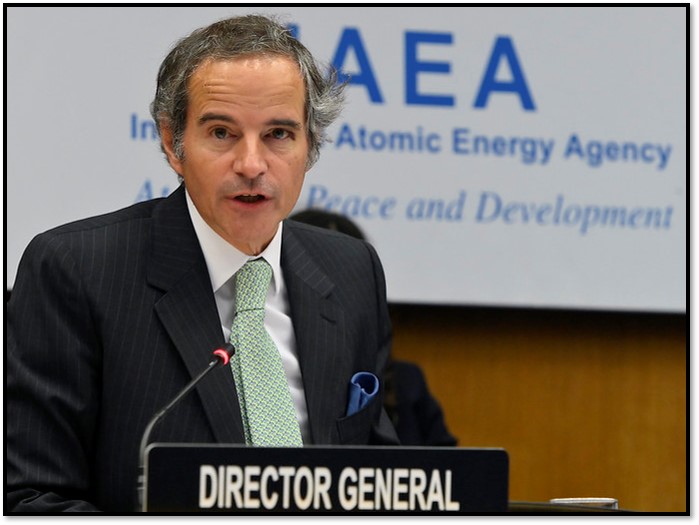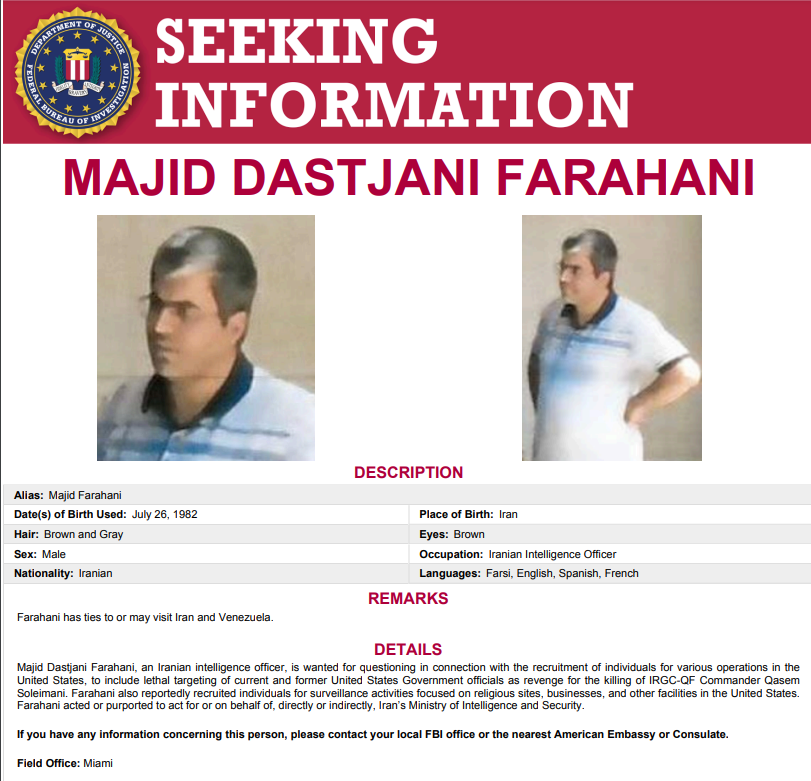February 26
International: Iranian security forces shot at and injured 20 Kurds crossing the border area of Nowsud in western Kermanshah province. Border guards have repeatedly targeted kolbars, porters who transport untaxed goods across Iran’s borders with Iraq and Turkey. “The injuries sustained by the kolbars range from stomach, back, head, hand, and foot injuries, and they were subsequently transported to medical centers in Paveh city,” Hengaw Organization for Human Rights reported.
Nuclear: The U.N. nuclear watchdog said that Iran had reduced its stockpile of highly enriched uranium over the last three and half months. The reduction marked the first quarterly drop in Tehran’s highly enriched stockpile since it started producing 60-percent enriched uranium in 2021. Uranium enriched to that level could easily be enriched further to 90 percent, or weapons grade, if Iran made the decision to produce a nuclear weapon. The International Atomic Energy Agency warned that it may not be able to conclusively state whether Iran has diverted nuclear material to a weapons program due to restrictions Tehran has placed on monitoring.

Diplomacy: Working groups from the 17th Iran-Russia Joint Economic Committee started meetings in Tehran to outline cooperation before the main session on February 28 between Iranian Oil Minister Javad Oji and Russian Deputy Prime Minister Alexander Novak. Over 20 groups were set up to boost bilateral cooperation in areas like energy, banking, technology, trade, science and agriculture. Iran and Russia have tried to expand collaboration across many sectors to mitigate the impact of Western sanctions.
Diplomacy: An Afghan delegation met with officials in Iran’s Chabahar Free Trade Zone to explore trade and investment opportunities. Iran seeks to promote the port’s business with Afghanistan. The visit included a tour of the facilities and talks on free trade agreements. In 2016, Iran, India and Afghanistan had jointly agreed to develop the Chabahar port with rail links connecting India to Afghanistan through Iran that would circumvent Pakistan.
February 27
International: The Iranian embassy in Sweden dismissed an annual threat report by the Swedish Security Service that identified Iran as a national security threat. The embassy called the report “irresponsible and contrary to diplomatic norms.” The embassy added that Iran will continue efforts to work on bilateral relations but urged the Swedish government to avoid provocative language.
International: The United States and Britain sanctioned the deputy commander of the Qods Force, the external operations branch of Iran’s Revolutionary Guards, and a member of the Houthi rebel group in Yemen. The U.S. Treasury also designated the owner and operator of a ship that transported goods sold to support the Houthis and the Qods Force. Additionally, the British Foreign Office sanctioned three Qods Force units, an Iran-based financier, and the Houthi undersecretary of the interior and commander of security forces.
International: CBS News released Department of Homeland Security reports indicating that several security officials who served in the Trump administration had Secret Service protection against threats from Iran. Protection for former National Security Advisors John Bolton and Robert O’Brien cost some $12 million. The threats were made in response to the U.S. killing of General Qassem Solemani, the commander of Iran’s elite Qods Force, in 2020.
Diplomacy: Iranian Foreign Minister Hossein Amir-Abdollahian attended the 55th Session of the U.N. Human Rights Council (UNHRC). He met with UNHCR High Commission Volker Türk. Amir-Abdollahian also spoke with the Egyptian, Danish and the Venezuelan foreign ministers.
February 28
Terrorism: A prosecutor in southeastern Sistan and Baluchistan province stated that militants carried out a failed roadside bombing as part of a terror plot. Local security forces killed one militant and a second escaped. They had reportedly crossed into Iran from the east.
February 29
Space: Russia helped launch an Iranian-made Pars 1 satellite into orbit using a Soyuz rocket. The imaging satellite will scan Iran’s terrain to aid development. U.S. officials had previously warned that such launches could help advance Tehran’s ballistic missile program.
March 1
Human Rights: Shervin Hajipour, who won a Grammy for his protest ballad “Baraye,” was sentenced to three years and eight months in prison for “propaganda against the system” and “encouraging people to protest.” The lyrics of the song were pulled from phrases used in Twitter posts about Mahsa Amini and the public outcry following her death in detention in September 2022.
International: The FBI’s Miami field office announced a search for Majid Dastjani Farahani, an Iranian national wanted in connection with recruitment of individuals for assassination plots. The intelligence officer sought to kill current and former U.S. officials in revenge for the U.S. assassination of Iranian General Qassem Soleimani in 2020.

